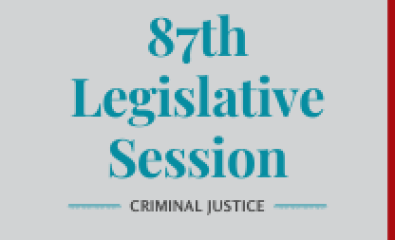
Limit the Impacts of the Criminal Legal System on Communities of Color and the Poor (2021 Legislative Priorities)
The Texas Appleseed Criminal Justice Program priorities for the 2021 Texas legislative session continue our longstanding commitment to limiting the impacts of the criminal legal system on communities of color and poor Texans. In concert with partner advocacy groups, faith and business leaders, community organizations and directly impacted people, we strive for a more just and equitable Texas legal system that ceases criminalizing poverty and prioritizes accountability over punishment, healing over retribution and freedom over control.
Responding to the Protests
In response to the momentous and unprecedented protests for racial justice last summer in the wake of the police killings of George Floyd, Breonna Taylor, Tony McDade, Elijah McClain, Mike Ramos, and many more, our priorities include legislation seeking to limit the threat of violence stemming from police interactions. Specifically, we support the New Sandra Bland Bill (HB 830) that strives to complete the original Sandra Bland Act passed in 2017 by restricting police authority to arrest for offenses where the maximum penalty is a fine — also known as “fine-only offenses.” Sandra Bland died in a Waller County jail in 2015 following an arrest stemming from a traffic violation.
Furthermore, we support the George Floyd Act (HB 88 & SB 161) which, along with containing the Sandra Bland Bill provisions, seeks to remedy many of the persistent issues that lead to police misconduct and limit accountability. The Act includes provisions that would limit qualified immunity for police officers at the state level; reform the statutory duties of police to require that they identify themselves, render aid and intervene in misconduct; limit their authorization to use force; require corroboration for undercover officer testimony; and ensure that police agencies have a disciplinary matrix providing uniform guidance on how misconduct will be treated at the agency.
We also support the Mike Ramos Act (Senate bill number forthcoming) named for the Afro-latinx man shot dead by Austin police in April of 2020. This act seeks to address some of the issues his mother has faced in the aftermath of her son’s killing, as well as the lack of authority available to the Texas Commission on Law Enforcement (TCOLE) to hold officers accountable for misconduct outlined in the Texas Sunset Advisory Commission report of the agency released in late 2020.
Finally, we again support efforts to restrict the police and prosecutor practice of civil asset forfeiture (HB 251), which enables these entities to permanently claim the assets of individuals stopped or arrested by law enforcement, who have not been convicted of any offense. We also support increased transparency of the practice which, completed in civil courts, subjects those least able to afford to have their property forfeited to an unfair burden of proof without state-provided representation. Please also visit our blog post here for more on our Civil Asset Forfeiture legislative priorities.
Limiting the Economic Impact of the Criminal Legal System
As many more Texans face hardship due to the economic crisis created by the pandemic, it is even more imperative that the criminal legal system not create additional burdens for people trying to support themselves and their families. With that goal in mind, we seek reform to the Failure to Appear (Omnibase) Program that currently prevents hundreds of thousands of Texans from renewing their driver’s licenses due to unpaid fines and fees. Specifically, we support lifting renewal holds once someone appears in court and gets on a payment or community service plan, rather than the current practice of preventing driver’s license renewals until all outstanding tickets have been addressed. This would continue to support the program’s goals of incentivizing people to appear in court to address unpaid fines and fees while providing people with the often essential ability to drive to work, school, etc.
Finally, according FBI statistics, upwards of 30% of adults in the U.S. have a criminal record. Even without a conviction, certain arrests may show up in background checks, subjecting millions to legal discrimination in housing, employment, education, etc. Sealing or expunging these records to curtail this discrimination in Texas remains inaccessible to many due to the limits on eligibility, the wait times required, and the costs and the complexity of the process. Providing more Texans with access to a Clean Slate (Texas site forthcoming) will remove a substantial barrier limiting opportunity and help people avoid additional involvement with the criminal legal system. In partnership with a large coalition, we’ll be supporting a package of bills to address these issues.
In conclusion, while we expect that responding to the many facets of the global pandemic will drive many aspects of this biennium’s Texas legislative session, we believe that limiting the barriers to opportunity erected by the criminal legal system should be viewed as part of that response. Additionally, addressing the issues at the root of last summer’s protests — the largest collectively in the history of this country — must also be a priority for the 87th Texas Legislature. Texas Appleseed promises to help lead the charge, not only for criminal justice, but social and economic justice as well.